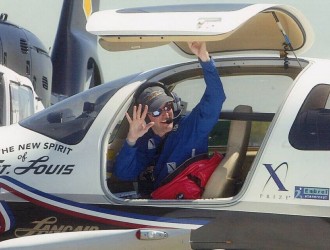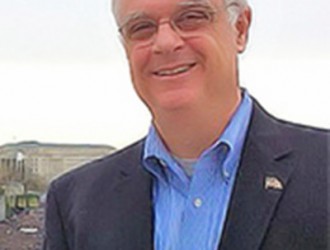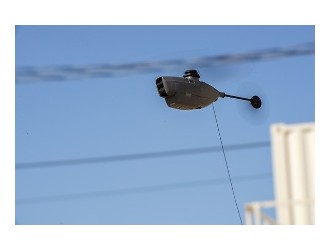
With Thanksgiving less than a month away, airlines and airports — not to mention savvy travelers — are bracing for what could be a record-setting year-end holiday travel season in the United States.
Capping a year in which lower fuel prices kept airline ticket prices down, and a more robust economy spurred an increase in passengers, the coming holiday season could make airports more crowded than ever. That’s why it pays to start planning ahead to navigate crowded check-in and security lines.
Jessica Tipton, a lawyer in San Francisco who flies frequently for work and leisure, said she planned to give herself three hours to get checked in and through security when traveling this holiday season.
“That’s kind of my minimum for holiday travel, even for a domestic flight,” she said. “I went to a wedding in mid-August, and it took me almost three hours to get through security — in the middle of a day on a Wednesday.”
And even as the road warriors are already devising their game plans, airport staff members know that some of the biggest bottlenecks will be caused by the less-experienced travelers whose once-a-year airplane trips come around the holidays.
Those are the passengers most likely to turn security checkpoints into chokepoints by trying to tote wrapped gifts in their carry-on luggage or bring items containing more than the allowable 3.4 ounces of liquid. (Snow globes can be big yuletide troublemakers.)
And that is despite continued efforts by the federal Transportation Security Administration to educate travelers about the rules.
“Awareness of prohibited items is something we constantly have media days on,” said Gary Rasicot, chief of operations for the T.S.A. “We try to maintain an efficient flow through the checkpoint, but it’s hard to predict.”
The airline industry’s trade group, Airlines for America, has not yet issued projections on passenger numbers for the holiday season. But airport operators are already preparing to accommodate a bigger-than-usual surge.
At Hartsfield-Jackson Atlanta International Airport, the world’s busiest, officials expect 4 to 6 percent more passengers in November and December than during last year’s holiday season, when 16.6 million travelers passed through.
“Those are going to be record-high numbers,” said Balram Bheodari, the airport’s deputy general manager.
To manage the surge, the Atlanta airport is adding more advanced security screening lanes that automate the movement of carry-on baggage — five by Christmas, up from two now — and plans to increase overall hours worked by 20 percent, through overtime and seasonal hires. “It’s equivalent to about five to seven additional employees per shift during peak time,” Mr. Bheodari said.
Many other major airports are taking similar steps.
“What we have started to see is most airports are putting into place customer service functions; you’ll often see roving workers now to try to manage pinch points and bottlenecks,” said Dan McKone, a managing director and partner at L.E.K. Consulting, whose specialties include aviation and travel.
“One of the things that contributed to profitability in the U.S. airline industry in particular is we’ve been operating at high loads for the past number of years,” Mr. McKone said.
The full planes have helped airlines’ balance sheets improve over the last few years. But they also mean there are fewer empty seats to rebook passengers after a delay or a cancellation, which can happen for any number of reasons.
Bad weather is always a potential hazard, especially in the northern part of the country and along the busy Eastern Seaboard, wher a snow or ice storm in one city can trigger a chain reaction of delays.
Another risk is a malfunction in the aging technologies on which airlines depend. This year Southwest, Delta and United have all had computer failures that caused delays and stranded passengers.
“You’ve got a variety of systems across the industry that are quite old,” Mr. McKone said. Despite the risk that the aging technology poses, upgrading would be a considerable expense and would also come with the risk of a malfunction or even a crash during the transition. “There’s some trepidation about moving away from them,” he said.
Security also is a consideration. After wait times at some major airports ballooned to two and even three hours this year, Congress allowed the T.S.A. to shift $62 million from elsewher in its budget to hire hundreds more screeners. But even that move has gone only so far in speeding things up when passengers keep showing up in droves.
“The T.S.A.’s objective is totally different from the objective of airports and airlines,” said Bijan Vasigh, a business professor at Embry-Riddle Aeronautical University in Florida. “They want to ensure that the passengers are traveling safely,” he said, even if that means that timeliness takes a back seat.
But Mr. Rasicot at the T.S.A. said the controversy over long delays had prompted the agency to re-evaluate its role within the air transportation system.
“I think what changed is that T.S.A. used to sort of view ourselves outside the transportation system, as security monitors, and now we’ve integrated ourselves,” Mr. Rasicot said. Now, he said, T.S.A. has a centralized hub wher it can oversee the nation’s busiest airports in real time to get updates on staffing, open lanes and passenger wait times.
“We have the ability now to more rapidly adjust our staffing at the airports,” Mr. Rasicot said. If the agency sees a logjam building, it can send in more workers before those on duty get overwhelmed. “We monitor every major airport hourly for their wait times,” he said, “so we know things more quickly than we used to.”
But seasoned travelers have spent enough time in airports this year to know that the holiday surge will inevitably involve long lines.
“The biggest thing I’m changing is preparing myself to be patient and go a little earlier,” said Heather Hernandez, a clinical operations manager for a pharmaceutical company based in the San Francisco area and a frequent traveler.
Ms. Hernandez is planning multiple trips during the period from Thanksgiving to Christmas, and intends to give herself an extra 90 minutes beyond the hour she usually budgets for checking a bag and getting through security.
“It’s so fun as a frequent traveler to be incredibly efficient,” she said. But over the holidays, “it’s just not going to be that way.”





